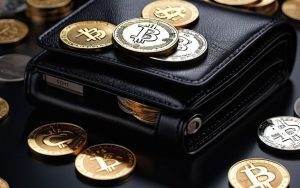MVL is a fast-growing web 3 mobility ecosystem, a blockchain-based mobility ecosystem launched in 2018.
Mobility industry workers participating in the MVL ecosystem have sovereignty over the values they create and are provided with incentives.
MVL has established a virtuous cycle ecosystem in which more people participate by operating high-quality, profitable services and applying incentives based on Blockchain. They aim to make infrastructure that bridges the digital world and mobility business.
Data from drivers and vehicles were obtained through TADA and ONiON services. These data can be combined with blockchain services such as NFT and games to create new value. Through this process, greater incentives can be provided to ecosystem participants and create new ways to utilize MVL tokens.
MVL Bridge
The MVL Bridge allows users to move their existing Ethereum-based MVL tokens to the Binance Smart Chain. Users can freely transfer between MVL ERC20 tokens and MVL BEP20 tokens through the MVL Bridge.
MVL began supporting two types of tokens which are MVL-ERC20 and MVL-BEP2, after launching the swap page in September last year. MVL-BEP20 Token was newly added with the launch of the MVL Bridge. BEP20 is a standard token used in Binance Smart Chain. Binance Smart Chain can support an intelligent contract, unlike Binance Chain, and is chosen for building the DeFi ecosystem since it has low transaction fees compared to the Ethereum blockchain, fast transaction speed, and high compatibility with outer assets.
MVL Bridge is considered the first gateway to MVL blockchain service. MVL plans to build various blockchain services to be introduced in the future, such as DeFi, NFT, and games, on this Binance Smart Chain. Therefore, the demand and utilization of the MVL BEP20 token will gradually grow. The MVL Bridge supports the ERC20 ⇄ BEP20 chain transfer of MVL tokens. For BEP2 tokens, you can use the bridge service after swapping them for ERC20 tokens.
The MVL’s ecosystem is built around the MVL tokens. The platform functions by applying MVL blockchain technology to TADA and ONiON ecosystem services operated in the real world of MVL to build a Web3 service ecosystem that encompasses the Blockchain and the real world.
The MVL token is a key commodity connecting the MVL ecosystem. Participants in the MVL ecosystem are incentivized according to their contribution to the ecosystem and can use other services in the MVL ecosystem. In the future, it will expand the use of payment fields such as ride payment and vehicle purchase and will also be used as significant goods in blockchain services such as NFT and Game.
In addition, as the fee burden of the Ethereum network increases, they have established a swap page with Binance Smart Chain. As a result, many users can easily access various blockchain services to be launched in the future.
Staking
For the growth of the MVL blockchain ecosystem, MVL launches MVL Staking.
MVL Staking is a basic service that MVL holders can directly or indirectly contribute to support the convenient and safe landing of Web3 and better use of MVL tokens for mobility service users in Southeast Asia, such as drivers and riders.
MVL holders can contribute to the MVL mobility ecosystem through staking, and incentives will be given accordingly. The two types of staking include:
- LP Staking (Farms)
Contribute to providing liquidity of bMVL tokens in the BNB network where MVL mobility incentives work.
- Single Staking (Pools)
Contribute to pre-work for side-chains and Mainnet preparations to be considered when on-chain transactions increase.
LP Staking (Farms)
It is depositing two pairs of tokens in the AMM DEX to form a sufficient liquidity pool for token trading is called Liquidity Providing. DEX provides LP tokens to liquidity providers as proof of deposit.
Those who hold LP tokens, that is, liquidity-providing participants can earn a certain amount of commission when a transaction occurs in the pool but may incur impermanent losses due to the token price changes.
Sufficient liquidity is a very important aspect underlying the MVL Incentive Protocol, where active operation of bMVL tokens on-chain is important. Therefore, the concept of LP Staking is to provide rewards to those who participate in liquidity providing. As a result, many projects provide various incentives for participants to supply more token liquidity. The most representative method is LP Staking.
Single Staking (Pools)
Single staking is a bMVL single token deposit service that will be conducted on the MVL Bridge. The main purpose of the service is to:
Encourage ERC20 MVL token holders to switch to the BEP20 bMVL token network to activate bMVL liquidity-providing (bMVLBNB LP creation) participation.
Who are the founders of Mass Vehicle Ledger (MVL)?
The MVL team includes Kay Woo, who is the Chief Executive Officer (CEO), Jaehwa Han, who is the Chief Technology Officer (CTO), and Woosung Son, who is the Chief Security Officer (CSO).
What is Mass Vehicle Ledger (MVL) used for?
Record vehicle data
The MVL ecosystem allows users to record all activities related to a particular vehicle for its lifetime and prevent these records from being corrupted.
Use all recorded data
Various participants in the automotive market can continue to add reliable data and connect to the ecosystem.
Earn rewards
Users who provide vehicle data earn MVL points (MVPs), an element of the reward system that promotes contributions to the ecosystem.
How is Mass Vehicle Ledger (MVL) unique?
MVL is the fastest-growing mobility platform in Southeast Asia. It conducts business in Singapore, Cambodia, and Vietnam and has partnerships with more than 30 mobility companies. Millions of participants are in the MVL ecosystem, and there are more than 140,000 drivers active on the TADA platform, and the number of registered riders using TADA already exceeds 1 million.
The MVL team is firmly operating the absolute business service, which is the core of the MVL ecosystem. TADA Mobility provides services such as Delivery, Trucking and Ride-Hailing & Taxi.
ONiON infrastructure produces E-Vehicle and E-Bike while operating E-Station, battery exchange, and a logistics hub.
How many Mass Vehicle Ledger (MVL) coins are in circulation?
There are 22,552,958,863 MVL coins in circulation out of the total maximum supply of 30,000,000,000 MVL.
How is the Mass Vehicle Ledger network secured?
The Mass Vehicle Ledger network data is protected by its Blockchain. Thus, only the owner has authority over the data stored on the Blockchain.
How do I buy Mass Vehicle Ledger (MVL)?
The MVL token can be used for a wide range of purposes, like staking and governance.
MVL tokens can be easily purchased by following the following steps.
Open an account with the crypto trading platform.
* Transfer the specific amount of your fiat currency to your account.
* Wait for your deposit to be confirmed and buy MVL through your trading account by swapping with BTC, ETH, or USDT pairs.
Which Cryptocurrency Wallet Supports Mass Vehicle Ledger (MVL)?
The PTPWallet platform supports many cryptocurrencies, with MVL soon to be included. Because of its vast use case, PTPWallet has grown to become one of the most used platforms, as it serves as an exchange and an engine to discover other cryptocurrencies. The platform offers a simple user interface, is supported by both Android and iOS devices, and comes with its own mobile wallet app.



